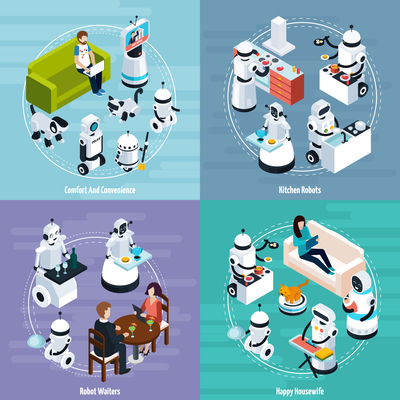Human Resource
Beyond The Future Of Work – Jobs Of Tomorrow
Jobs of the future will have a huge focus on finding the essential people and outsourcing the rest.
Outsourcing
The jobs of the future will have very little to do with processing words or numbers (the Internet can do that now). Nor will we need many people to act as placeholders, errand runners or receptionists. Instead, there’s going to be a huge focus on finding the right people and outsourcing the rest.
So, are you essential? Most of the best jobs will be for people who manage customers, organise fans, and do digital community management. We’ll continue to need brilliant designers, energetic brain stormers and rigorous lab technicians. Increasingly though, the need to actually show up at an office that consists of an anonymous hallway and a farm of cubicles or closed doors is ebbing away. It’s too expensive, and it’s too slow and cumbersome.
Fifteen years ago, Facebook didn’t exist. Ten years before that, we didn’t have the Web. So who knows what jobs will be born a decade from now? One thing for sure is that it will not look the same as now. No one is going to pay you just to show up. We will see a more flexible; more freelance, outsourced, flat structured, collaborative, and far less secure work world. It will be run by a generation with new values — and women will increasingly be at the controls.
PeoplePerHour, the online freelance market, reckons selfemployment in the UK and the US is currently growing at an average rate of more than three percent. Based on official labour market statistics, PeoplePerHour predicts self-employment will grow at an annual rate of 3.5 percent over the next five years in the UK, and at 3.2 percent in the US.
That would mean one in two people in both countries would be working as freelancers by 2020, the company said. In Australia, that number is predicted to be 5,000,000 by 2020. In the US, meanwhile, a study published last year by the Freelancers Union suggested as many as a third of working Americans were already self-employed – around 56 million in all – though some also hold down jobs. It said that the rise of online marketplaces for freelance work such as Uber, Elance and freelancer.com was partly to explain for the increase in self-employment in western countries. This is more than people having a side hustle, it’s a complete paradigm shift from the way we think about work today.
Work-life balance. In most corporate circles, it’s the sort of phrase that gives hard-charging managers the hives, bringing to mind yoga-infused, candlelit meditation sessions and — more frustratingly — rows of empty office cubicles.
Green Jobs
Climate change is a real threat; shifting jobs from industries that harm the earth to ones that sustain it will become an economic imperative. At the same time, the world faces a long-term climate crisis. But what if there was a way to solve both problems with one policy? A number of environmentalists and economists believe that by implementing a comprehensive energy programme, we can not only avert the worst consequences of climate change but also create millions of new jobs — green jobs — in the west.
What’s a green job? It depends on whom you ask. Some categories are obvious: if you’re churning out solar panels, you’re getting a green paycheck. But by some counts, so are steelworkers whose product goes into wind turbines or contractors who make homes more energy efficient. According to the U.S. Department of Energy (DOE), 3.4 million Americans were directly employed by the clean energy industry (which includes the energy efficiency, smart grid, and energy storage industries; electric power generation from renewables; renewable fuels production; and the electric, hybrid, and hydrogenbased vehicle industries).
Environmental advocates asserted that with the right policies, those job figures could swell. It is predicted that for the next three decades, green employment could provide up to 10% of all job growth.
Water
When you talk to experts about developing new technology to provide clean drinking water for the developing world, they’ll tell you that with four billion people making less than $2 a day, there is no viable business model, no economic model and no way to finance development costs. But the 25 poorest countries already spend 20% of their GDP on water. This 20%, about 30 cents, is not much, but do the math again: 4 billion people spending 30 cents a day is a $1.2 billion market every day. It’s a $400 billion a year opportunity.
Filling that need will not easy, however profitable it is. Thus, addressing this will require every tool in the toolbox. Our agricultural practices must be totally revamped, our industrial practices as well. We will need water wise appliances, novel infrastructure solutions, and a lot of honesty about planetary population pushing nine billion. What is the carrying capacity of the earth? At this point in time, nobody knows. But one thing is for sure; we are going to have to deploy a lot more intellectual horsepower to solve that conundrum and maintain the solution.
In the future, we will have more and more leisure time as machines replace many of the tasks we do at home and at work.
Leisure Jobs
In the future, we will have more and more leisure time as machines replace many of the tasks we do at home and at work. Japan has introduced a housewife robot that does all house chores, from cleaning to cooking. The implications for older people is clear, allowing them more independent living. However using machines will have side effects.
People may tend to become lazy and face health problems like obesity, diabetes and heart problems. Nonetheless all this additional spare time will need to be filled. We will see massive growth in out-of-home entertainment, leisure and tourism sectors.
Martin Conboy is well recognised as one of the leading voices of the global outsourcing industry and his role in facilitating outsourcing success throughout the Asia-Pacific. He has also worked in a number of senior leadership roles including in the recruitment sector.



